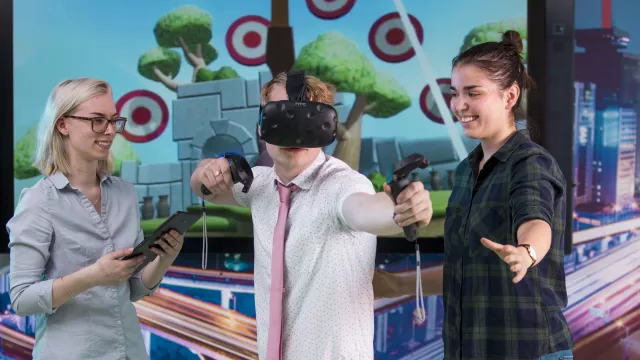During the first year, you learn about the different aspects of information technology and acquire a solid foundation in the field. You follow a broad programme with four quarters, each with its own theme, and work on practical assignments in small groups. Throughout the entire year, you are supported by your study career coach and lecturers, who help you to further develop your professional skills.
Module 1: Web Development and Design
Work on your basic programming skills in the module Web Development, in which you master the programming languages PHP and HTML. Apply your newly learned skills in the project Web Development and Design, where the focus lies on user experience.
Module 2: Database Engineering
Learn the principles of setting up and maintaining a network and install a web server with a database within the project Database Application Management. Dive into database management, focusing on the design, setup, and utilization of databases using SQL. Learn fundamentals for data manipulation, retrieval, and a seamless connection between a PHP-based web application and a database.
Module 3: Project Battlebot
Take the first step towards programming a software application in this module. You will learn object oriented programming with Java. In the exciting BattleBots project your robot will be competing with other robots.
Video impression Battlebot race
Module 4: Innovate
Have you always had a good idea for an app? Or do you want to do more with programming hardware like robots and Raspberry PI's? In the project Innovate, you start a project yourself, giving you the opportunity to realize your ideas. Paired with the module Computational Thinking, you will be able to make the logical decisions that lead to a successful completion of your project.
Subjects:
- Programming (HTML/CSS, PHP, Java, C, SQL)
- Arduino, Raspberry Pi, ESP32
- UI/UX and Frontend Development
- Computer networks
- Cyber Safety
- Oral & written communications
- Research
- Professional skills
- Organizational processes
Study load: 20 contact hours, 20 self study hours | 60 ECTS per year






